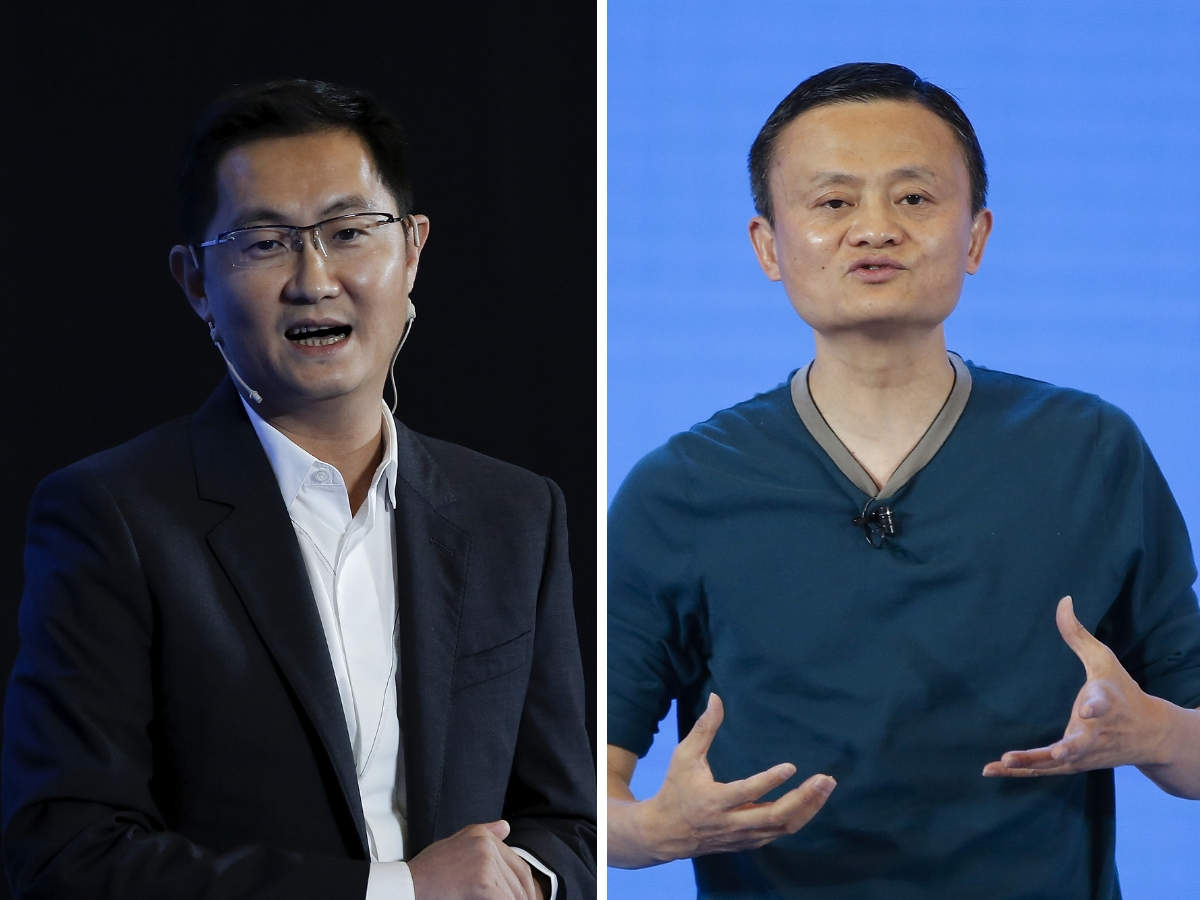

After Jack Ma, China cracks down on Tencent founder Pony Ma
Chinese President Xi Jinping’s war on his country’s tycoons—poster boys of the rise of private capital—appears to be snowballing with the head of Tencent Holdings, now under the scanner.
The targeting of Pony Ma—the founder of Tencent, known for its omnibus WeChat app—follows the likely incarceration of Jack Ma, the founder of the famous Alibaba e-commerce+ digital empire. Pony Ma is no ordinary digital tycoon. The founder, chairman and chief executive officer of Tencent, runs Asia's most valuable company. It is one of the largest Internet and technology companies, and one of the biggest investments, gaming and entertainment conglomerates in the globe. On three occasions, 2007, 2014, and 2018, Time magazine named him one of the most influential persons in the world. <em>Radio Free Asia</em> (RFA) is reporting that investigators have already arrived at the offices of Tencent and e-commerce company Meituan.
Their arrival follows Jack Ma's run in with the bigwigs of the Communist Party of China (CPC). His vast multibillion empire in now likely to be taken over by the State. The first step towards nationalisation —an antitrust probe to check whether Alibaba group is an illegal monopoly–has already begun.
Internet finance industry insider Song Qing told <em>RFA</em> that the antitrust investigation is part of CPC’s plans to nationalise both Ant Group—the financial arm of the conglomerate- and Alibaba’s e-commerce business.
"There will definitely be an outcome, now that they have started the investigation," Song was quoted as saying. "This is probably coming from the highest levels."
"Just a couple of weeks ago, they set out plans to nationalise Ant Group and Alibaba; the timing was deliberate," he observed. "Those plans all came from the central leadership."
"These nationalisations are definitely happening, and [the antitrust investigation] will likely speed up that process," Song said. "It's also, I think, about making an example of [Ant and Alibaba]."
While Jack and Pony Ma are the global icons who are under fire, the attack on private business honchos, who have fallen out of line with the CPC, led by Xi Jinping, had begun some time ago.
Last year a court in Dalian sentenced Ren Zhiqiang a property tycoon to 18 years in prison. His sentencing was astonishing as Ren was part of the country’s blue-blooded elite. Ren’s father, Ren Quansheng was China’s Vice Minister of Commerce. Like many others of that generation, Ren’s parents were persecuted, and sent to work in the countryside in 1968, during the disastrous Cultural Revolution of Mao Zedong, founder of the People’s Republic of China (PRC).
The outspoken Ren, shielded by influential backers in the CPC, also became a top social media celebrity with a jaw dropping following of 37 million people on Weibo, China’s twitter variant.
But Ren’s luck finally ran out when he directly targeted Xi in the heat of the Coronavirus pandemic. In a February 2020 essay, Ren blasted Xi for his role in handling the pandemic.
Commenting on one of the President’s speeches, Ren said he “…saw not an emperor standing there exhibiting his ‘new clothes,’ but a clown stripped naked who insisted on continuing being emperor”.
Hell broke loose after that. By the beginning of April, the property icon was investigated for “serious violations of law and discipline”. That led to his expulsion from the ranks of the CPC. Fully disarmed, Ren was sentenced to 18 years in jail, on September 22.
By getting after the symbols of Chinese enterprise, Xi’s global image is rapidly mutating. Analysts had earlier described Xi as a hybrid-leader, a combination of reformist leader Deng Xiaoping and Mao, the iron-fisted founder of the People’s Republic of China. Xi was said to be combining Mao’s authoritarian streak without disembarking from economic reforms of Deng.
But by showing signs of turning thriving private companies into a state-owned enterprise, the Maoist strain in Xi’s leadership appears to have become increasingly pronounced.
During the assault on Jack Ma, Xi also seems to be on the way to revive the abandoned Maoist concept of class struggle, which was a major spur leading the disastrous Cultural Revolution in the sixties. Spurred by the CPC, Chinese state media has started bad-mouthing the “filthy rich” Ma. State media have been keen to paint the government's targeting of Ma's tech empire as subjecting the country’s super-rich to public scrutiny and regulation.
"They are targeting this huge company … because they want people to hate the super-rich," commentator Guan Xingwang told <em>RFA.</em>.
Russian President Vladimir Putin is set to visit India, as confirmed by Russian Minister of…
Philippine authorities revealed the capture of six Chinese nationals and one Filipino, who were suspected…
The Foreign Department of the Baloch National Movement (BNM) has initiated an urgent global appeal,…
India will soon introduce its first indigenous semiconductor chip, as five semiconductor units are currently…
Human rights activist and defender Fazal ur Rehman Afridi on Wednesday (local time) delivered a…
External Affairs Minister (EAM) S Jaishankar on Wednesday addressed the Central Asia Youth Delegation at…